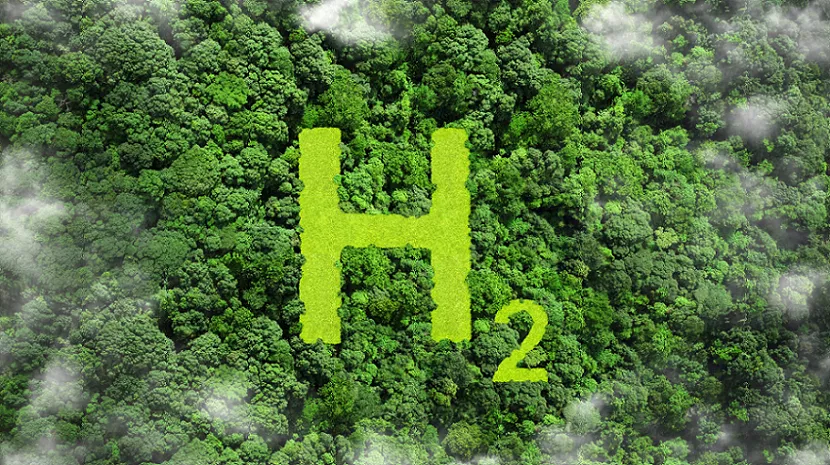Hydrogen Valleys in Poland
#hydrogen #vocationaltraining
Hydrogen valleys in Poland are dynamically developing centers of innovation, key to the development of ecological hydrogen technologies. They combine the production, applications and research of hydrogen in various economic sectors, creating sustainable energy markets and providing space for experimental projects. These initiatives combine political, social and economic aspects to develop regional hydrogen markets and comprehensive technologies related to its production, transmission, storage and use in various sectors.
Hydrogen is seen as a key element in achieving climate balance. The European Commission indicates that its role will increase as we move away from fossil fuels, especially as an energy carrier and medium for storing electricity from renewable energy sources. In Poland, hydrogen production is mainly based on industrial demand, where the methods used often generate significant CO2 emissions. In the context of the European Green Deal, interest in low-emission and green hydrogen is growing in Poland. Green hydrogen, produced by electrolysis of water using renewable energy, is considered the most beneficial for the environment. Work is underway in Poland on the development of electrolysis technology, as well as on biomass gasification and steam reforming biogas projects.
The hydrogen sector is gaining importance, with Poland ranking third in Europe for hydrogen production, with annual production of around 1.3 million tonnes. Although most hydrogen is currently produced in large industrial plants using the steam reforming process of hydrocarbons, growing environmental awareness and international commitments are driving changes towards low-emission and green hydrogen production.
In Poland, the role of Hydrogen Valleys is particularly important in the context of heavy industry and the automotive industry, where investments in hydrogen technologies are crucial for decarbonization. Hydrogen valley projects in Poland, such as the Podkarpacka Dolina Wodorowa (Podkarpacka Hydrogen Valley) or Dolnośląska Dolina Wodorowa (Lower-Silesian Hydrogen Valley), are examples of initiatives bringing companies, scientific institutions and local authorities together to promote hydrogen technology and decarbonization of the industry. These initiatives focus on developing a local hydrogen-based systems, in accordance with the "Polish hydrogen strategy by 2030 with a perspective to 2040".

Hydrogen Valleys are the arena for a number of pioneering projects that demonstrate the practical use and potential of hydrogen as an energy carrier.
- Podkarpacka Dolina Wodorowa - one of the most significant project is the initiative at the Rzeszów University of Technology, where hydrogen production and distribution technologies are being developed. Working with regional companies such as Autosan, Dolina is focusing on the production of hydrogen-powered vehicles, including buses.
- Dolina Wodorowa w regionie śląsko-małopolskim (Hydrogen Valley in the Silesia-Lesser region of Poland) - focuses on the use of green hydrogen in heavy industry and transport. The project involves the development of hydrogen distribution infrastructure, including refueling stations, and promotes the use of hydrogen in local public transport.
- Dolnośląska Dolina Wodorowa - on the initiative of KGHM, this project aims to develop hydrogen technologies for the mining and metallurgical sector. KGHM is exploring the possibilities of using hydrogen as an alternative to traditional fuels in industrial processes.
- Mazowiecka Dolina Wodorowa (Masovian Hydrogen Valley) - brings together 37 companies and institutions, including entities such as PKN Orlen and the Warsaw University of Technology. The project focuses on developing hydrogen applications in rail transport, including the production of hydrogen locomotives and the development of hydrogen refueling technology.
- Projekt w Gdańsku (Project in Gdańsk) - a project is being carried out in Gdańsk aimed at using hydrogen in urban public transport. It is planned to implement hydrogen buses and expand the hydrogen refueling infrastructure, which is expected to contribute to reducing emissions and improving air quality in the city.
These projects not only demonstrate the innovative use of hydrogen, but also form part of Poland's broader strategy for energy transformation and achieving climate neutrality.
One of the main goals of these valleys is to support the production and distribution of hydrogen from renewable energy sources. Therefore, the European Union plans to install electrolyzers with a total capacity of 6GW by 2026, producing one million tons of hydrogen from renewable energy sources, and by 2030 to expand the electrolyzer capacity to 40GW. There are already eleven such projects in Poland, each of which focuses on different aspects of hydrogen use and production, from transport through industry to energy.
Criteria for hydrogen valleys defined by Clean Hydrogen Partnership , indicate the need to create comprehensive ecosystems combining the production, storage, distribution and use of hydrogen. For the success of projects, it is also crucial to conduct feasibility studies and ensure financing, both from EU, national and regional funds.
To sum up, the concept of hydrogen valleys in Poland is a key strategy for developing a hydrogen-based economy. These geographical areas integrating hydrogen production, distribution and use aim not only to support the decarbonization process, but also to develop technological, scientific and industrial ecosystems. The involvement of institutions, companies and financial support, especially from public-private funds, is crucial for creating infrastructure, technological demonstrations and creating national supply networks. Hydrogen valleys in Poland are a key step towards a sustainable future, reducing emissions and creating new industries based on innovative hydrogen technologies.
The article was prepared as part of the project "Professions and competences in the hydrogen sector", no. 2023-1-PL-01-KA220-VET-000159821.
Bibliography:
- https://arp.pl/pl/jak-dzialamy/transformacja-energetyczna-/doliny-wodorowe/
- https://przemyslprzyszlosci.gov.pl/polskie-plany-wodorowe/
- https://www.cire.pl/artykuly/materialy-problemowe/179840-jak-napedzimy-gospodarke-wodorem-wszystko,-co-musisz-wiedziec-o-polskiej-strategii-wodorowej
- https://zielonagospodarka.pl/h2idea-tv-sd-polska-i-partnerzy-buduja-kompetencje-i-innowacje-w-gospodarce-wodorowej-12798
- https://www.fgreenlab.org/publikacje/strategie-rozwoju-gospodarki-wodorowej
- https://www.forum-ekonomiczne.pl/doliny-wodorowe-trampolina-do-ogolnoeuropejskiej-gospodarki-wodorowej/
- https://www.gov.pl/web/klimat/polska-strategia-wodorowa-do-roku-2030
- „Polska strategia wodorowa do roku 2030 z perspektywą do roku 2040” - załącznik do uchwały nr 149 Rady Ministrów z dnia 2 listopada 2021 r. (poz. 1138), Warszawa, październik 2021 r.





